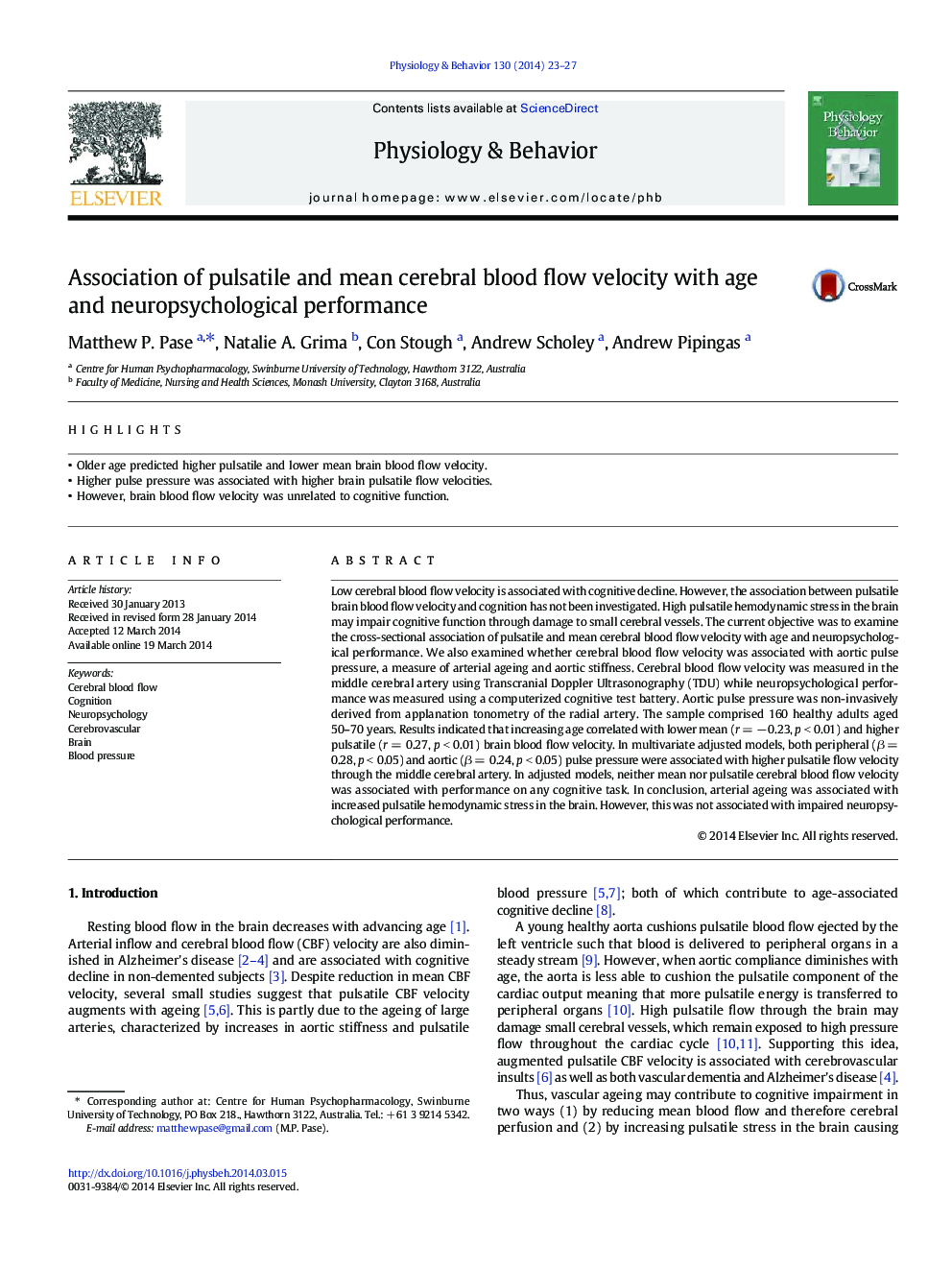| Article ID | Journal | Published Year | Pages | File Type |
|---|---|---|---|---|
| 5924203 | Physiology & Behavior | 2014 | 5 Pages |
Abstract
Low cerebral blood flow velocity is associated with cognitive decline. However, the association between pulsatile brain blood flow velocity and cognition has not been investigated. High pulsatile hemodynamic stress in the brain may impair cognitive function through damage to small cerebral vessels. The current objective was to examine the cross-sectional association of pulsatile and mean cerebral blood flow velocity with age and neuropsychological performance. We also examined whether cerebral blood flow velocity was associated with aortic pulse pressure, a measure of arterial ageing and aortic stiffness. Cerebral blood flow velocity was measured in the middle cerebral artery using Transcranial Doppler Ultrasonography (TDU) while neuropsychological performance was measured using a computerized cognitive test battery. Aortic pulse pressure was non-invasively derived from applanation tonometry of the radial artery. The sample comprised 160 healthy adults aged 50-70 years. Results indicated that increasing age correlated with lower mean (r = â 0.23, p < 0.01) and higher pulsatile (r = 0.27, p < 0.01) brain blood flow velocity. In multivariate adjusted models, both peripheral (β = 0.28, p < 0.05) and aortic (β = 0.24, p < 0.05) pulse pressure were associated with higher pulsatile flow velocity through the middle cerebral artery. In adjusted models, neither mean nor pulsatile cerebral blood flow velocity was associated with performance on any cognitive task. In conclusion, arterial ageing was associated with increased pulsatile hemodynamic stress in the brain. However, this was not associated with impaired neuropsychological performance.
Related Topics
Life Sciences
Biochemistry, Genetics and Molecular Biology
Physiology
Authors
Matthew P. Pase, Natalie A. Grima, Con Stough, Andrew Scholey, Andrew Pipingas,
